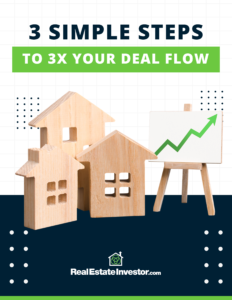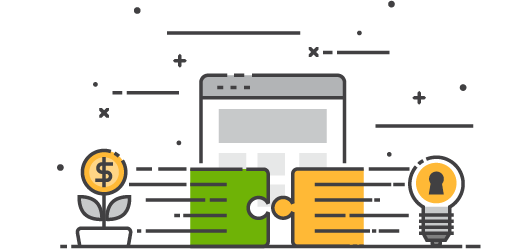As a kid, I heard the phrase “save for a rainy day,” every time I wanted to spend my allowance on candy. I’m sure I wasn’t alone in hearing this common statement, and boy oh boy were those adults right….
But the truth of the matter is that Americans have more debt and less cash reserves today than ever in our history.
According to studies, only 40% of Americans can afford a $1,000 emergency, and 78% of us live paycheck to paycheck. With over $14 trillion in consumer debt, it’s no wonder that many Americans have little or no cash reserves.
The recent pandemic crisis reinforced the need for Americans, and businesses, to have cash reserves for these “rainy days.”
Financial experts have recommended having a savings of at least three, and preferably, six months on hand. This would allow you to pay bills and afford your mortgage should you lose your job unexpectedly.
The same holds true for businesses…
According to a 2016 study by JP Morgan Chase, only half of all small businesses hold cash reserves to support them for 27 days. With the recent economic situation, 21% of these businesses would fail without some sort of government relief.
Is Your Business Able To Weather An Economic Storm?
As a real estate investor, you may not think cash reserves are necessary or even possible. After all, real estate is a cash-intensive investment. To purchase properties, you need cash. Any cash on hand is utilized for the next investment.
Even with no-cash down deals, properties may need to be repaired or upgraded which will require the cash you have. Seems virtually impossible to have reserves. But having a financial strategy that includes a cash reserve is critical for times like these.
Many real estate investors have the mindset that their investments are separate from each other. In reality, they should see themselves as a Real Estate Investment Company with a portfolio of properties. And like all companies, real estate investment firms, need cash and cash equivalents to be sustainable during tough economic times.
Experts suggest having 5-10% of your assets in cash or cash equivalents. As your portfolio grows, your risk will be diluted by being spread across more properties. Your cash percentage could then drop slightly, though you should aim to cover basic expenses for a period of three to six months.
If you’re having trouble building this type of emergency fund, then I highly recommend you shift your real estate investment strategy to wholesaling. Wholesaling is a strategy we love here at RealEstateInvestor.com since it mitigates your risk as an investor, and the barrier to entry is much less than purchasing a property outright.
We help real estate investors build successful and sustainable businesses around wholesaling all the time.
Don’t take my word for it, read their stories here:
How REIgnyte Managed Services Helped This Couple Scale from 2 Deals to 23 Deals in 7 Months.
Real Estate Opportunities Explode For Young Investors: How RealEstateInvestor.com Helped This 21 Year Old Launch A Successful Real Estate Investing Business Around Wholesaling.
By working a wholesaling strategy, you can set aside a percentage of each deal to build up the cash reserves necessary to be prepared for economic storms.
But first, let’s finish talking about building your cash reserves…
Where Should You Start When Trying To Build Cash Reserves?
So now that you understand the importance of building cash reserves, where do you start?
The idea of starting from nothing can seem daunting. Saving can be difficult for many people. To be successful, you must be willing to defer gratification.
What does that mean?
It means you don’t buy that sports car or take that exotic island vacation. Resist the temptation to reward yourself and learn to live frugally.
Imagine your employer gave you a $5,000 raise. If you were living a comfortable lifestyle before this pay increase, there’s no need to change anything. Skip the expensive jewelry and designer suits. Save your extra earnings and you’ll be on your way to having cash reserves.
If you don’t have any savings today, you must first start with an emergency fund. Save $1,000 to $2,000. Then pay off bad debt such as high-interest credit cards that drain your income each month and give you nothing in return.
Lastly, start saving and investing. Once you have some cash saved, consider investing in money markets or other cash equivalents that you can liquidate quickly when needed, yet still earn you a small return.
If financial freedom is a top priority for you….
Financial Freedom is incredibly important to me, and as such, I always advocate real estate investors building their emergency funds first before starting to invest in real estate.
When it comes to putting the cash into building your business, there’s no getting around the need to invest in things like marketing, lead generation, and the systems and services you need to operate your business wisely.
But, remember being cash poor at the beginning of your investment career is expected, but it should not be a permanent way of life.
Recognize that establishing cash reserves may take time. But you need to be proactive with your financial decisions and follow your business plan
If you do this and act wisely, soon you will have the reserves needed for that next rainy day.







